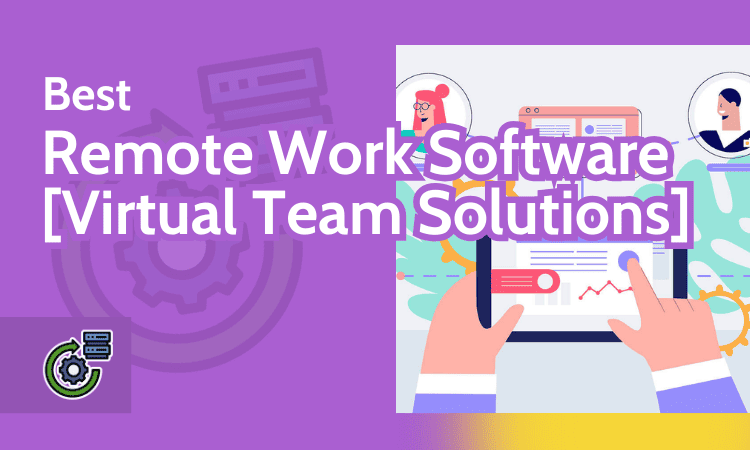2Mami Insights
Your go-to source for news, tips, and inspiration.
Ditching the Cubicle: The Remote Work Software Revolution
Unlock the future of work! Discover the software transforming remote jobs and ditch the cubicle for good.
Top 5 Remote Work Tools Revolutionizing Collaboration
In today's fast-paced digital world, remote work has become the norm, and collaboration tools are essential for productivity. Here are the Top 5 Remote Work Tools that are revolutionizing collaboration amongst teams:
- Slack - A messaging platform that enables real-time communication and file sharing, simplifying the flow of information.
- Trello - A project management tool that allows teams to organize tasks using boards, lists, and cards, enhancing project visibility.
- Zoom - A video conferencing tool that connects teams through seamless video calls, ensuring everyone stays engaged.
- Google Workspace - An integrated suite of applications that provides cloud storage and collaborative functionality for documents and spreadsheets.
- Miro - An online whiteboard platform that fosters creative collaboration through brainstorming and visual mapping.

How to Choose the Best Software for Your Remote Team
Choosing the best software for your remote team is crucial to maintaining productivity and collaboration. Start by assessing your team's specific needs and workflow. Consider factors such as communication tools, project management software, and platforms that facilitate file sharing. Create a list of essential features that align with your team’s objectives. For instance, if you require task tracking, look for software that includes task assignment, progress tracking, and deadline management. Once you have a comprehensive list, you can begin to narrow down your options.
Next, involve your team in the decision-making process to ensure the software you choose meets their preferences and capabilities. Solicit feedback on features they find useful and any software they have previously used. Consider trying out several options through free trials or demos to evaluate user experience. Remember to weigh factors such as cost, scalability, and integration capabilities with your existing tools. Ultimately, the best software for your remote team will enhance collaboration and streamline workflows, making it essential to invest time in the selection process.
Is Remote Work Here to Stay? Exploring the Future of Work Software
The rise of remote work catalyzed by the global pandemic has transformed how businesses operate. Many companies have adapted to this new reality, allowing employees to work from the comfort of their homes. As we delve into the future of work software, it's essential to recognize the tools that are enhancing collaboration and productivity in remote environments. Platforms like video conferencing, project management, and cloud storage are no longer optional; they have become integral to maintaining team connectivity and efficiency. The widespread adoption of these technologies suggests that remote work is here to stay, shaping a hybrid work model that combines the best of both worlds.
As organizations realize the benefits of flexibility and a broader talent pool, the demand for innovative work software continues to rise. We can expect to see even more advanced solutions emerging, including AI-powered analytics to enhance decision-making and virtual reality for immersive collaboration experiences. With these advancements, businesses are likely to invest in technology that supports remote workflows, making it clear that the future of work will depend heavily on how effectively we adapt our software to meet shifting demands. In conclusion, the question isn't whether remote work will persist, but rather how organizations will embrace and integrate essential tools to thrive in this new landscape.